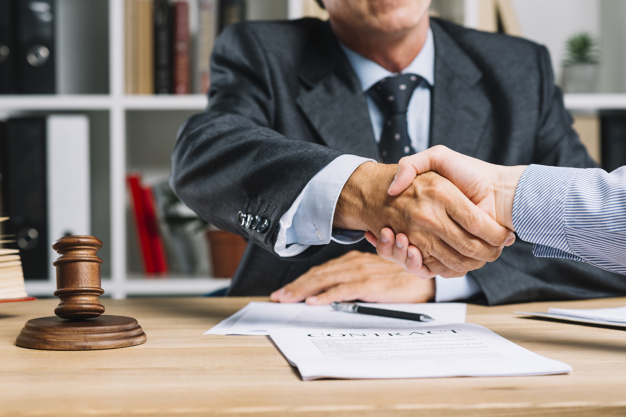-

Who Provides Legal Aid?
What Is Legal Aid? Legal aid provides free legal assistance to low- and middle-income people who have non-criminal legal issues. It helps ensure equality for all before the law, no matter how much money you have. What Type Of Services Does Legal Aid Provide? Direct services by pro bono volunteers and legal aid attorneys like legal representation during a court proceeding and legal advice to help identify legal problems and possible solutions. Identifying and addressing systemic issues such as complicated data collection and helping to figure out how to solve the problems faced by a large number of people. Self-help and community education for people delivered through workshops, medical/legal partnerships, telephone helplines, online information and chat tools, and downloadable court forms. All of these things can help people understand their rights and responsibilities, when they may need legal help and where they can find it, and get assistance with self-representation when necessary. Who Provides Legal Aid? LSC-Funded Organizations The Legal Service Corporation (LSC) is the single largest funder of civil legal aid programs in the United States. The LSC is a federally-funded nonprofit corporation, which distributes over 90% of its total federal appropriation to 134 independent nonprofit legal aid organizations in the country. These organizations help people who live in households with annual incomes at or below 125% of the federal poverty guidelines. Non-LSC-Funded Organizations There are also many independently-run nonprofit civil legal aid organizations that don’t get LSC funds. Many of them are not limited to people who earn above 125% of the federal poverty guidelines. Some programs, for example, may serve any older American or domestic violence victim regardless of income. Self-help and informational services are available to everyone. Who Receives Legal Aid? Legal aid serves Americans of all backgrounds and ages, including families, children, veterans, seniors, and the sick or the disabled. How To Get Legal Aid? There are many ways to get legal aid if you can not afford a lawyer: 1. Contact Bar Associations Research your local or state bar associations and contact them. Bar associations have abundant information about family lawyers or programs that can provide services free of charge or at a greatly reduced rate. 2. Visit Your Local Law Firms Pay a visit to your local law firms, and tell them the details of your case and your financial status. If you meet their standards, you may receive free legal aid. 3. Look Into Legal Aid Offices Legal aid offices employ lawyers and paralegals to offer free services to those who are qualified. They are exceptionally helpful in handling many common legal matters, such as divorce cases, landlord and tenant issues, and employment problems. To find a legal aid office, do a simple online search or check your area’s phone directory. 4. Get Free Legal Services From Law Schools Many law schools run legal clinics where you can get free legal services from law students under the supervision of experienced lawyers. Such clinics can take on all general civil or criminal matters or may be specialized in only one type of legal case. Contact your local law schools for the details. 5. Take Advantage Of The Free Legal Services Offered By Your Local Courts Many courts offer free legal clinics or Friend of the Court to people who are involved in certain types of lawsuits, typically in cases relating to family law. So check your local court’s website or talk to its clerk to see what kind of free legal assistance they provide and if you are eligible.
Read More > -

The Importance Of Legal Aid
Legal aid is extremely important for people with low or middle income. If they have legal needs, legal aid can truly help in their struggles. What Is Legal Aid? Legal aid, here referring to civil legal aid, is free legal assistance to people who have civil legal problems but are unable to afford legal representation and access to the court system. Legal aid helps ensure equity for all the people in the justice system, no matter how much money you have. Low-income people or families with basic necessities, such as health care, housing, government benefits, employment, and educational services, should seek legal aid. The Importance Of Legal Aid Justice is an essential part of the democratic system. If some citizens are unable to access the law, the courts and laws become useless for the public. The legal aid system provides free legal advice to disadvantaged groups, and this means equal legal opportunities to all groups of society. Meanwhile, it also brings an end to all discrimination based on social or economic status or other disabilities. Plus, legal aid motivates young law students to provide affordable legal services for the weaker section. Apart from free legal assistance, there are other personal benefits you can receive from legal help. Resolving a case with legal aid can assist you financially and grant you access to resources you otherwise couldn't gain. For example, if you want to obtain a restraining order against your spouse for domestic abuse, it can be less difficult with legal help, and homeless veterans can receive the help they need. It also prevents larger legal and financial problems from arising, thus helping the economy as a whole. If you need legal aid, then apply for it to benefit both you and your community. What Type Of Services Does Civil Legal Aid Provide? Civil legal aid mainly provides free legal advocacy and legal information for people with low and middle income to solve their civil legal problems. Here are three types of services that civil legal aid can offer: 1. Provide direct services by legal aid lawyers and pro bono volunteers It means obtaining a lawyer to be your legal representation in a court proceeding, or getting legal advice to help solve legal issues. 2. Help identify and address systemic issues It refers to comprehensive data collection and identifying solutions to problems faced by a large number of people. 3. Improve self-help and community education It helps people understand their rights and responsibilities, where to find legal aid when they need it, and how to get assistance with self-representation. This can be delivered in many ways, such as workshops, chat tools, telephone helplines, legal partnerships, and downloadable court forms. What Issues Can Legal Aid Help Low-Income People Address? Family Issues: Legal aid helps parents obtain custody of their children, assists victims of domestic violence with obtaining restraining orders, helps family members acquire guardianship for children without parents and other family law related matters. Housing and Foreclosure Issues: Legal aid helps to resolve landlord-tenant disputes, helps homeowners prevent foreclosures or renegotiate their loans, assists renters with eviction notices, and helps people maintain federal housing subsidies. Consumer Issues: Legal aid helps to protect vulnerable groups from being oppressed by unscrupulous lenders, helps people file for bankruptcy when necessary, and assists people with debt problems. Employment Issues: Legal aid helps working Americans acquire promised compensation from private employers, and assists people with their government benefits such as veterans, disability, and unemployment compensation. Military Family Issues: Go to StatesideLegal.org to find legal resources important to veterans. The free legal service enables military families and homeless veterans to access legal information and assistance.
Read More > -

How To Get Free Legal Aid?
What is legal aid? Legal aid provides eligible applicants with the service of legal representation in court proceedings. The aim of the legal aid is to ensure that no one who has reasonable grounds for pursuing legal action in the courts is denied access to justice because of a lack of means. Who receives legal aid? Legal aid helps low-income individuals and families, including working poor, families with children, farmers, people with disabilities, and the elderly. How to get legal aid? If you can’t find a lawyer, but still need legal representation or have any questions about your legal rights, you can get free legal aid in your area. 1. Look into programs that are funded by the government The first step to look for a free lawyer is by looking into programs that are funded by the government. The Legal Service Corporation (LSC) is the single largest funder of legal aid programs in the United States, providing about one-quarter of the fund to 134 independent nonprofit legal aid organizations in every state. Find an LSC-fund organization near you online. 2. Reach out to any local law firms Local law firms have a wealth of information about family lawyers or programs that can provide you free or reduced-rate legal services. Check your phone book or do an online search for information about local law firms in your area. 3. Local legal aid office Legal aid offices and organizations receive funds from the government, and they are normally tasked with taking on cases concerning the poor or impoverished. Because they receive limited funds from the government, lawyers can usually take on a select few cases involving unemployment benefits, social security benefits, and so on. Most cities have their contact information in a phone book or online. Contact them to see if you qualify for free legal aids. 4. Obtain the aid through your local law school Many law schools run legal clinics where you can get access to legal aid from their law students who are under the supervision of the experienced family attorneys or law professors. Generally, this type of pro bono work is offered in particular areas, including family law, elder law, landlord-tenant issues, health care law, and financial assistance. To find a legal clinic, look on the website of law schools in your area.
Read More >
